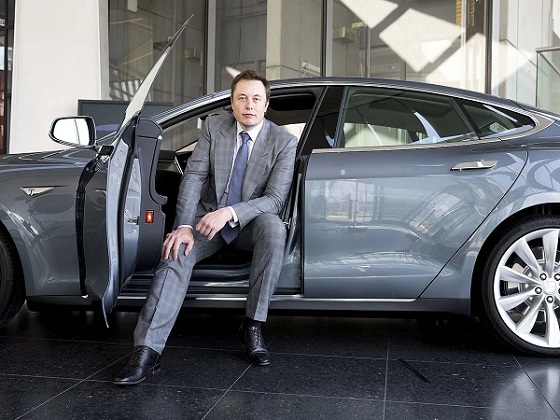Opinion
Opinion Piece from Conservative Leader Andrew Scheer

OP-ED: FIGHTING FOR ENERGY JOBS
I had one of the most inspiring days of my political life this week in Nisku, Alberta.
I was there as an endless line of trucks rolled through town in a show of support for Alberta’s energy sector. The convoy stretched back almost 22 kilometres, with hundreds of men and women making their voices heard loud and clear. Heading to a townhall meeting to talk to these struggling workers, I got out of my car and walked the rest of the way.
It was emotional. There’s a lot of anger, and it’s justified. People have lost jobs. Families have been broken up. The pain is real, but it’s going unaddressed by Justin Trudeau’s government. That’s why so many hardworking Canadians came out with a single message for Justin Trudeau: They don’t want his handouts. They want to go back to work. 
I went to Alberta this week to respond to this impassioned plea for help. I went to look these men and women in the eye, and tell them that we’re with them, and we’re fighting for them. Not just Conservatives, but people from across the country that understand how important our energy sector is to Canada’s economy. They’re not alone.
Everyone in Nisku understood why they were there, and why the situation in Canada’s energy sector is so grim.
Justin Trudeau is trying to phase out their jobs. An industry that has sustained families and given them their livelihood for generations is being shut down by a prime minister who no longer hides his disdain for their work. In just three years, Trudeau has killed two major pipeline projects, and thrown $4.5 billion in taxpayer money into another that he can’t build. Meanwhile, his government’s Bill C-69 will put the energy sector out of business for good by ensuring that no pipeline project will see the light of day – ever again.
The consequences of Trudeau’s disastrous policies are felt most strongly in Alberta but will affect every part of Canada. Our national economy is losing billions of dollars because we don’t have enough pipeline capacity to get our resources to those who want to buy them. Canadian oil is now selling at a major discount, costing us jobs and investment. That is why Alberta’s government took the drastic step of cutting production, and why the ultimate responsibility for that move lies with Justin Trudeau. His pipeline vetoes, carbon taxes and added red tape are the cause of this lack of pipeline capacity, and the dire consequences that have followed.
The prosperity that once flowed from Alberta’s energy sector to communities across our country is a distant memory under Justin Trudeau.
At the same time, all he’s offered suffering workers and their families is a small government handout. That money might feed families for a few weeks, but the pipelines that get Canadian energy to markets will feed us all for a generation.
With Justin Trudeau doubling down on his destructive carbon tax and rejecting every attempt to revive struggling pipeline projects, it is clear that he will never take any meaningful step to offer help.

That’s why I outlined my Conservative plan to get out energy sector back on track. When Conservatives form government we are going to cancel the carbon tax, and repeal Bill C-69. But that’s just our first step. We will also establish firm timelines for pipeline approvals, invoke constitutional authority to build major projects, and eliminate foreign interference in the approvals process.
Justin Trudeau has done historic damage to Canada’s energy sector. And after this week, everyone understands that it’s going to take a change of government to put an end to this crisis and get our energy sector back to work.
Hon. Andrew Scheer
Leader of Canada’s Conservatives
Automotive
Auto giant shuts down foreign plants as Trump moves to protect U.S. industry

 MxM News
MxM News
Quick Hit:
Stellantis is pausing vehicle production at two North American facilities—one in Canada and another in Mexico—following President Donald Trump’s announcement of 25% tariffs on foreign-made cars. The move marks one of the first corporate responses to the administration’s push to bring back American manufacturing.
Key Details:
-
In an email to workers Thursday, Stellantis North America chief Antonio Filosa directly tied the production pause to the new tariffs, writing that the company is “continuing to assess the medium- and long-term effects” but is “temporarily pausing production” at select assembly plants outside the U.S.
-
Production at the Windsor Assembly Plant in Ontario will be paused for two weeks, while the Toluca Assembly Plant in Mexico will be offline for the entire month of April.
-
These plants produce the Chrysler Pacifica minivan, the new Dodge Charger Daytona EV, the Jeep Compass SUV, and the Jeep Wagoneer S EV.
Diving Deeper:
On Wednesday afternoon in the White House Rose Garden, President Trump announced sweeping new tariffs aimed at revitalizing America’s auto manufacturing industry. The 25% tariffs on all imported cars are part of a broader “reciprocal tariffs” strategy, which Trump described as ending decades of globalist trade policies that hollowed out U.S. industry.
Just a day later, Stellantis became the first major automaker to act on the new policy, halting production at two of its international plants. According to an internal email obtained by CNBC, Stellantis North American COO Antonio Filosa said the company is “taking immediate actions” to respond to the tariff policy while continuing to evaluate the broader impact.
“These actions will impact some employees at several of our U.S. powertrain and stamping facilities that support those operations,” Filosa wrote.
The Windsor, Ontario plant, which builds the Chrysler Pacifica and the newly introduced Dodge Charger Daytona EV, will shut down for two weeks. The Toluca facility in Mexico, responsible for the Jeep Compass and Jeep Wagoneer S EV, will suspend operations for the entire month of April.
The move comes as Stellantis continues to face scrutiny for its reliance on low-wage labor in foreign markets. As reported by Breitbart News, the company has spent years shifting production and engineering jobs to countries like Brazil, India, Morocco, and Mexico—often at the expense of American workers. Last year alone, Stellantis cut around 400 U.S.-based engineering positions while ramping up operations overseas.
Meanwhile, General Motors appears to be responding differently. According to Reuters, GM told employees in a webcast Thursday that it will increase production of light-duty trucks at its Fort Wayne, Indiana plant—where it builds the Chevrolet Silverado and GMC Sierra. These models are also assembled in Mexico and Canada, but GM’s decision suggests a shift in production to the U.S. could be underway in light of the tariffs.
As Trump’s trade reset takes effect, more automakers are expected to recalibrate their production strategies—potentially signaling a long-awaited shift away from offshoring and toward rebuilding American industry.
Business
‘Time To Make The Patient Better’: JD Vance Says ‘Big Transition’ Coming To American Economic Policy

JD Vance on “Rob Schmitt Tonight” discussing tariff results

From the Daily Caller News Foundation
By Hailey Gomez
Vice President JD Vance said Thursday on Newsmax that he believes Americans will “reap the benefits” of the economy as the Trump administration makes a “big transition” on tariffs.
The Dow Jones Industrial Average dropped 1,679.39 points on Thursday, just a day after President Donald Trump announced reciprocal tariffs against nations charging imports from the U.S. On “Rob Schmitt Tonight,” Schmitt asked Vance about the stock market hit, asking how the White House felt about the “Liberation Day” move.
“We’re feeling good. Look, I frankly thought in some ways it could be worse in the markets, because this is a big transition. You saw what the President said earlier today. It’s like a patient who was very sick,” Vance said. “We did the operation, and now it’s time to make the patient better. That’s exactly what we’re doing. We have to remember that for 40 years, we’ve been doing this for 40 years.”
“American economic policy has rewarded people who ship jobs overseas. It’s taxed our workers. It’s made our supply chains more brittle, and it’s made our country less prosperous, less free and less secure,” Vance added.
Vance recalled that one of his children had been sick and needed antibiotics that were not made in the United States. The Vice President called it a “ridiculous thing” that some medicines invented in the country are no longer manufactured domestically.
“That’s fundamentally what this is about. The national security of manufacturing and making the things that we need, from steel to pharmaceuticals, antibiotics, and so forth, but also the good jobs that come along when you have economic policies that reward investing in America, rather than investing in foreign countries,” Vance said.
WATCH:
With a baseline 10% tariff placed on an estimated 60 countries, higher tariffs were applied to nations like China and Israel. For example, China, which has a 67% tariff on U.S. goods, will now face a 34% tariff from the U.S., while Israel, which has a 33% tariff, will face a 17% U.S. tariff.
“One bad day in the stock market, compared to what President Trump said earlier today, and I think he’s right about this. We’re going to have a booming stock market for a long time because we’re reinvesting in the United States of America. More importantly than that, of course, the people in Wall Street have done well,” Vance said.
“We want them to do well. But we care the most about American workers and about American small businesses, and they’re the ones who are really going to benefit from these policies,” Vance said.
The number of factories in the U.S., Vance said, has declined, adding that “millions of workers” have lost their jobs.
“My town [Middletown, Ohio], where you had 10,000 great American steel workers, and my town was one of the lucky ones, now probably has 1,500 steel workers in that factory because you had economic policies that rewarded shipping our jobs to China instead of investing in American workers,” Vance said. “President Trump ran on changing it. He promised he would change it, and now he has. I think Americans are going to reap the benefits.”
-

 2025 Federal Election2 days ago
2025 Federal Election2 days agoMORE OF THE SAME: Mark Carney Admits He Will Not Repeal the Liberal’s Bill C-69 – The ‘No Pipelines’ Bill
-

 Automotive2 days ago
Automotive2 days agoTrump Must Act to Halt the Tesla Terror Campaign
-

 Break The Needle2 days ago
Break The Needle2 days agoWhy psychedelic therapy is stuck in the waiting room
-

 2025 Federal Election2 days ago
2025 Federal Election2 days ago‘Coordinated and Alarming’: Allegations of Chinese Voter Suppression in 2021 Race That Flipped Toronto Riding to Liberals and Paul Chiang
-

 2025 Federal Election2 days ago
2025 Federal Election2 days ago‘I’m Cautiously Optimistic’: Doug Ford Strongly Recommends Canada ‘Not To Retaliate’ Against Trump’s Tariffs
-

 Alberta2 days ago
Alberta2 days agoBig win for Alberta and Canada: Statement from Premier Smith
-

 2025 Federal Election2 days ago
2025 Federal Election2 days agoThree cheers for Poilievre’s alcohol tax cut
-

 Alberta2 days ago
Alberta2 days agoEnergy sector will fuel Alberta economy and Canada’s exports for many years to come




